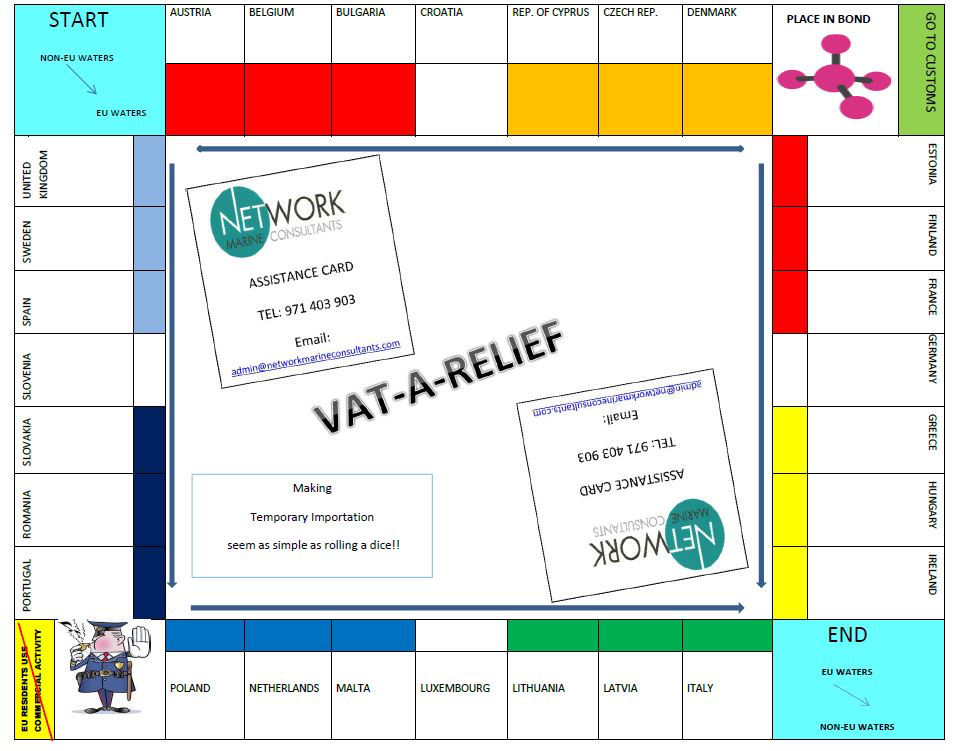Objective
Temporary admission allows non-EU flagged private yachts, owned by non-EU residents, to enter and operate in EU waters without paying VAT or customs duty—provided the yacht is intended for re-export.
Rules for temporary admission
-
Eligibility: Only for non-EU resident beneficial owners operating non-EU flagged private (non-commercial) vessels.
-
Duration: Temporary admission is valid for up to 18 months.
-
Free Movement: Yachts may move between EU Member States without additional customs formalities.
-
Start and End: The period begins upon entry into EU customs territory and ends upon exiting to non-EU waters.
-
Documentation: While formal customs declarations aren’t always required (e.g. in Spain), some Member States may ask for written or oral declarations. Owners/captains should keep detailed records.
-
Crew: EU-resident crew may work aboard with a valid employment contract.
-
Extension: Once the 18-month period ends, the yacht must exit EU waters. Upon re-entry, a new 18-month period begins. There is no minimum time the vessel must remain outside EU territory.
-
Residency & Use: Temporary admission is not available to beneficial owners with EU fiscal residency. Commercial use of the vessel is strictly prohibited, which may include advertising it for sale.
Note: For official EU information, visit:
Temporary Importation (European Commission)
Voluntary customs nonding
When the vessel is not in active use:
-
Suspension of the Clock: The 18-month period is paused while the yacht is bonded.
-
Duration: Bonding is allowed for up to 24 months (e.g. in the Balearics).
-
Crew Onboard: Crew may stay aboard if properly employed.
-
Temporary Debonding: Allowed for specific purposes like sea trials or moving between berths. The 18-month clock resumes afterward.
-
End of Period: Once both bonding and temporary admission periods expire, the vessel must exit EU waters or become liable for VAT and customs duties.
How network marine consultants can help
-
Expert guidance on temporary import procedures and customs inspections.
-
Assistance with customs bonding applications and communication with customs authorities.
-
Support for vessel re-export and VAT payment procedures if you choose to remain in the EU.
-
Tailored advice for corporate vs. individual yacht ownership documentation.
For more information or support, contact Network Marine Consultants.
























0 Comments